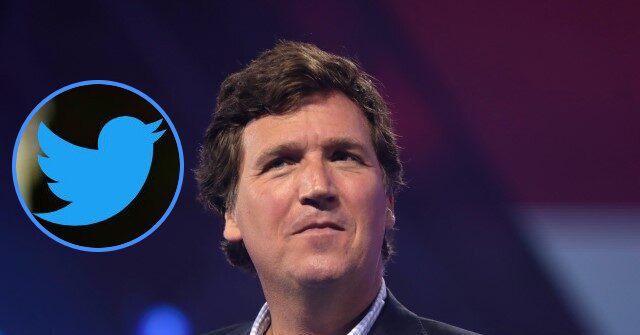In a stunning shroud of anticipation, former Fox News host Tucker Carlson’s Twitter show is reportedly set to ensnare one of its inaugural advertisers in an undisclosed seven-figure deal, potentially setting a new precedent for conservative-friendly advertising within the digital forum. The online retailer known embodying self-proclaimed moniker “America’s Marketplace,” or Public Square, has come into focus as reportedly sealing the deal which is yet to be confirmed publicly.
This possible alliance elucidates Carlson’s strategy to utilize his newly forged platform to attract advertisers that are in alignment with conservative values and are striving for a broader platform, suggested by an internal source. The announcement has sent ripples across the media world. Donald Trump Jr. expressed his commendation via a fervent tweet, stating, “Incredible to have guys like @TuckerCarlson on board with the mission.”
Incredible to have guys like @TuckerCarlson on board with the mission.
Tucker Carlson Twitter show strikes ad deal with @officialpsq. https://t.co/X1JcbMCV4G
— Donald Trump Jr. (@DonaldJTrumpJr) July 17, 2023
This pivotal moment arises in the wake of Carlson’s decision to ride into digital pastures new after waving goodbye to Fox News in April. The departure was linked to parent company settlement of a stinging $787.5 million defamation lawsuit waged by Dominion Voting Systems.
Amidst the fast-paced evolution of events, Public Square CEO Michael Seifert did not mince words during a recent interview, highlighting his intention to transform his company into a bastion of resistance against prevalent corporate sustainability and diversity policies, the environmental, social and governance (ESG) and diversity, equity, and inclusion (DEI) agendas. Public Square, according to Seifert, is positioning itself as the “nation’s largest marketplace of businesses that have refused to go woke,” signifying it as a promising contender in the ongoing culture wars.
Seifert went on to elaborate on the company’s philosophy and its unfaltering stand against what he described as “corrupt philosophies” they believe pose a threat to the American economy. Spearheading this charge necessitates a shift in consumer spending habits, which is at the heart of Public Square’s unwavering dedication to their customer base, an ideological movement Seifert insists “starts with consumer spending.”
In the wake of Carlson’s departure from Fox, a noticeable dip in viewership followed, signaling the shifting paradigms of news consumption. Wells Fargo followed suit downgrading Fox Corporation’s stock due to the continuous decline in viewership.
This insurgent narrative of the right-leaning ‘anti-woke’ economic movement signals a significant shift in the broadcast business landscape. The late August projected debut of Public Square’s ads on Carlson’s show potentially indicates a new dawn for alternative markets and platforms that continue to diverge from traditional norms, underlining the ever-evolving changes within the advertising sector, media consumption and the cultural landscape as a whole.
In conclusion, as the dust settles on the scene, the critical question remains whether Carlson’s reported partnership with Public Square will indeed prove to be a harbinger of a new era of digital, conservative-friendly advertising. Set against the backdrop of shifting cultural and political landscapes, this potential strategic shift underlines an impending evolution in the media landscape as we know it today. Only time will tell if Carlson successfully harnesses this uncharted territory, and thus spawns an enduring blueprint for conservative-based advertising in the digital realm, or whether this chapter remains a brief sojourn in his vast media endeavor. The future of industry composure and fragmentation of viewership may well hinge on the answers revealed in the unfolding months.



